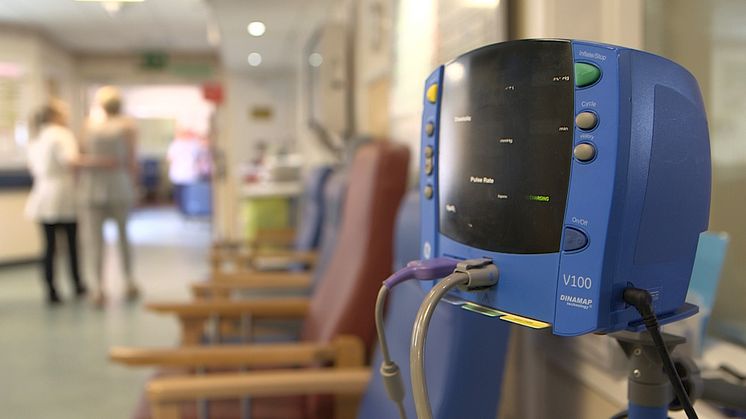
News -
New figures show too many Scots don’t receive basic level of stroke care
The UK’s leading stroke charity is deeply concerned by the latest national stroke statistics which tell a distressing story of decline of the most basic levels of hospital stroke care in Scotland.
The Stroke Association highlights less than two thirds of all stroke patients in the country were admitted to a dedicated stroke unit on time last year, despite stroke being designated as a clinical priority by the Scottish Government. Yet the annual Scottish Stroke Care Audit (SSCA) reports:
- admission to a stroke unit within one day of admission to hospital fell from 70% of people to just 63% last year. That’s against a standard of 90%.
Significant drops were recorded for NHS Boards: NHS Grampian, NHS Greater Glasgow and Clyde, NHS Lothian, NHS Forth Valley and NHS Lanarkshire.
Admission to a stroke unit is only one of four key building blocks of fundamental stroke care in hospital. The so-called ‘stroke care bundle’ comprises admission to a stroke unit, as well a brain scan, administration of aspirin, and screening for problems with swallowing. Every patient should get these. Research has shown that these are associated with improved patient outcomes, with particular importance attached to admission to a stroke unit.
The report acknowledges a ‘decline’ in the bundle too, with performance nationally down from 57% to 50%, set against a standard of 80%. That overall fall in performance against the stroke care bundle '…will inevitably have led to longer lengths of stay and worse outcomes for those patients affected.'
During a stroke, every second counts. 1.9 million brain cells die every minute, so speedy access to the right equipment, treatment, and specialist staff is vital. Where there is a delay, time lost is brain lost.
John Watson, Associate Director for the Stroke Association in Scotland said:
” When stroke hits, it’s an emergency. The number one priority is for the patient to be assessed by a stroke specialist urgently; this needs to be within just a few hours of symptoms starting. Because stroke is time urgent, stroke patients need to be prioritised to give people the best chance at survival and the best chance at recovery.
“Stroke teams and ambulance staff, do extraordinary work every day, but their efforts are undermined by a much wider systemic failure. Stroke patients and their families pay the price in lives lost, or profound and avoidable disabilities.”
“The alarming figures we see today will continue next year and the year after unless senior management teams inside Health Boards treat stroke as the priority it needs to be. Getting stroke care right means reduced time in hospital, reduced disability amongst patients and lower ongoing social care costs. It is exactly the kind of system improvement needed to address the current stress on the system. Health Boards owe it to all the stroke survivors, families and carers to do so.”
Find a copy of the report here











